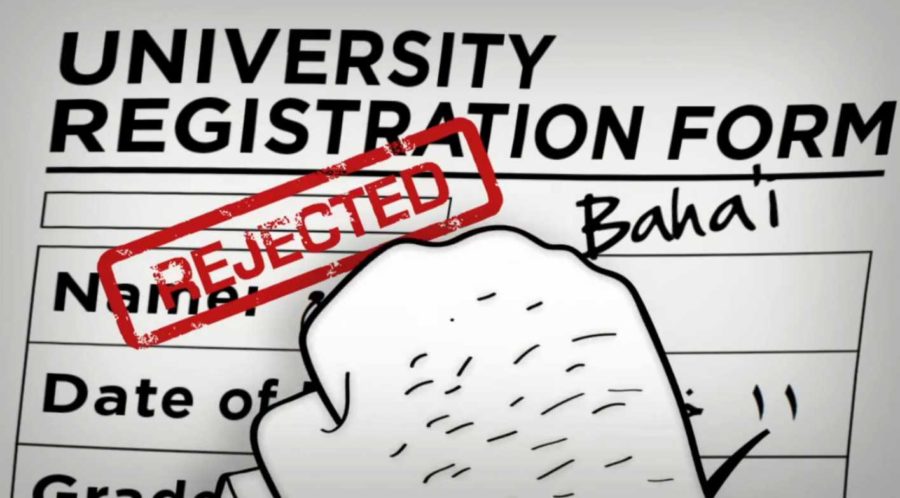Religious persecution still exists: Cam High alum shares story of pilgrimage from the Middle East
Members of the Bahá’í faith are often denied enrollment in universities because of their religious affiliation, prompting citizens such as Pegah Rezvani, Cam High alum, to immigrate elsewhere.
Fleeing from her birthplace in Iran, Cam High alum Ms. Pegah Rezvani and her family moved to America in 2010, hoping to establish a better life for themselves and find religious freedom.
Rezvani’s family are members of the Bahá’í faith, a monotheistic religion that is relatively unique in America, constituting only 0.0003% of the U.S. population in 2001. The Bahá’í faith is one of the few Iranian-born religions that do not have Muslim roots, resulting in regular persecution of the Bahá’ís by the Iranian Mullahs.
The strong prejudices against Bahá’í believers, along with their denied access to schools and universities, have caused many of them to leave their homes in fear, as Rezvani’s family did when she was just 13.
“[Moving to the United States] was really shocking because in Iran I couldn’t really talk about my faith that openly,” said Pegah. “I was really scared to talk about it here.” She felt that being able to be herself in the U.S. was “a pleasant culture shock.”
Rezvani’s parents thought it was especially vital that their daughter receive a quality education that was free from the pressure, harassment, and threats given towards Bahá’í teachers and students in Iran, enrolling her in Monte Vista Middle School, where Rezvani joined the robotics club. “I’m glad I can have my education here,” said Rezvani.
During her time at Cam High, Rezvani started a spirituality club on campus, partially motivated by her roots in the Bahá’í faith.
Bahá’í followers believe that God is only known through the lives and teachings of his prophets. They also believe that everyone’s soul lives on forever and that humans are all members of a single race, causing many to advocate strongly for complete equality between genders and ethnicities.
The reduced extent of prejudices and freedom of religion in the U.S. have been a welcome change for Rezvani and her family, but she remains concerned for her counterparts in the Middle East.
Many members of the Bahá’í faith continue to be persecuted, with instances such as the imprisonment of women with newborns, government monitoring of bank accounts, and the withholding of pensions and rightful inheritances happening on a regular basis. There are currently more than 100 Bahá’ís in prison on false charges related to their beliefs rather than actual crimes. “It is not right thing to be in jail because of your religious beliefs,” said Rezvani.
This year, the UN voted for continued monitoring of the human rights in Iran. In an article from the Bahá’í International Community, it was stated that “the vote, 20 to 11 with 16 abstentions, came after Dr. Shaheed and UN Secretary-General Ban Ki-moon told the Council that, among other human rights violations, Iran continues to discriminate against ethnic and religious minorities, including Bahá’ís, while also repressing women, suppressing freedom of expression, and executing people without fair trials.”

















































































![Senior Ditch Day... Relaxation or Truancy? [Video]](https://achsstinger.com/wp-content/uploads/2017/10/IMG_7119-900x599.jpg)
![Heavy Rain Hits Cam High [video]](https://achsstinger.com/wp-content/uploads/2017/02/maxresdefault-900x506.jpg)



